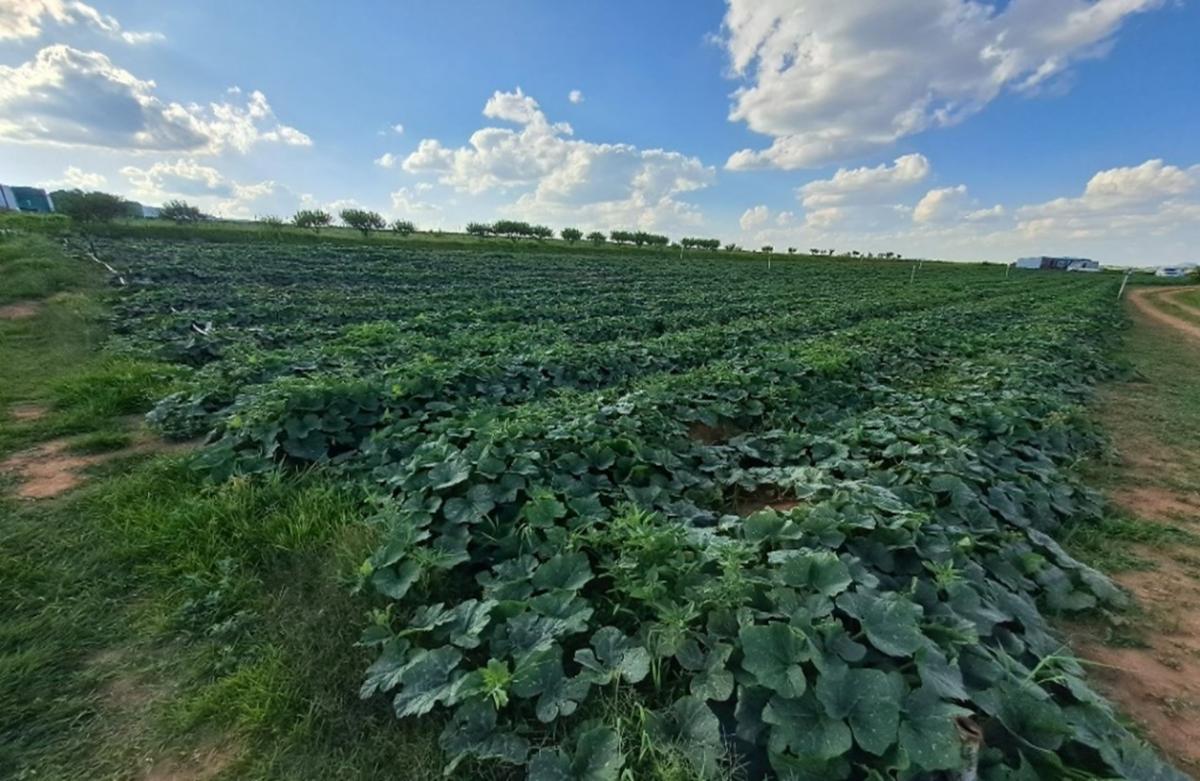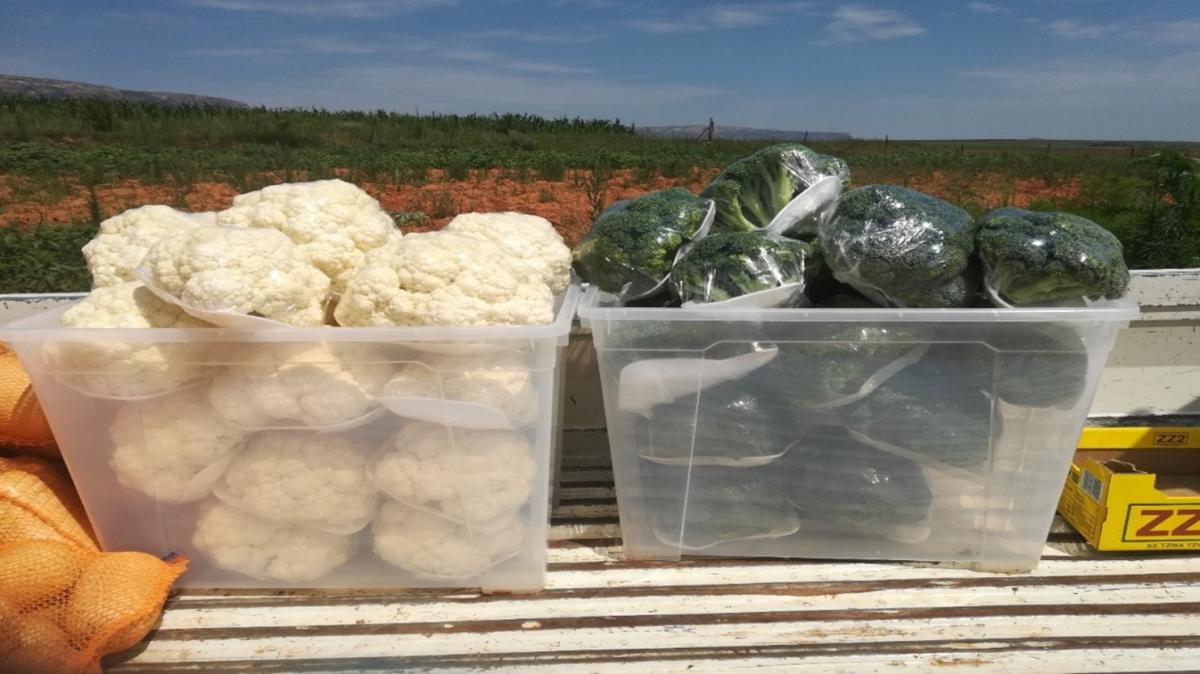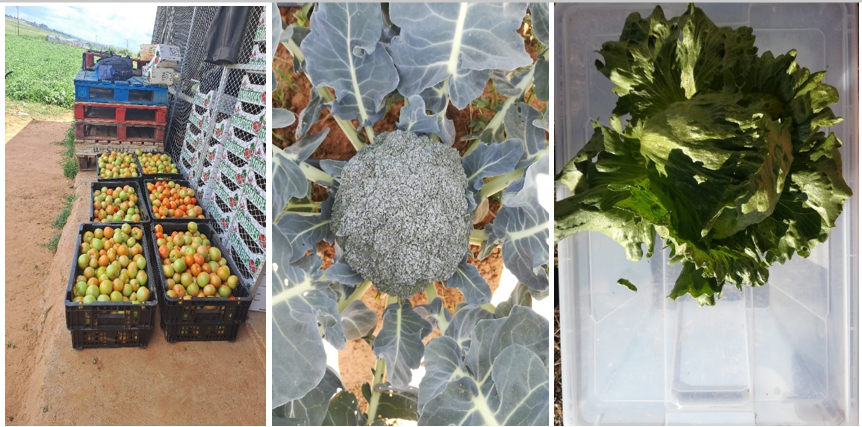Turning Soil into Gold at Qeme Farm in Lesotho

Farm workers at Qeme Farm sorting out some Onions
By Vidah Mahava
Maseru, Lesotho – Founded in 2012, Qeme Farm Production in the Kingdom of Lesotho has seen its share of ups and downs. The farm's CEO, Mrs. Marelebohile Ramokone, recently shared her insights on the farm's growth trajectory after attending the 8th Africa Agriculture Science Week and CCARDESA General Assembly in Durban, South Africa.
Specializing in the production of an array of vegetables on a five-hectare plot, the farm serves as a case study for resilience and sustainable farming practices." We initially produced crops like watermelon, rape, and Florida broad leaf, which failed due to watering issues and theft," said Mrs. Ramokone. "We even tried peach trees based on government promises of support, but the market was not favorable."

Some vegetables grown at Qeme Farm
After experiencing these setbacks, Mrs. Ramokone wrote a proposal to the Smallholder Agricultural Development Project (SADP) in 2018. With SADP’s support beginning in 2020, Qeme Farm was equipped with shade nets and a drip-line irrigation system, revolutionizing its farming practices.
Once SADP's assistance kicked in, the farm started diversifying its produce. In the 2020/2021 season, the farm successfully planted a variety of vegetables and maize on a one-hectare field. "If you want wealth, you will find it in the field," Mrs. Ramokone reflected.
 In 2020 after she received funds from SADP, she produced crops such as cabbages, red cabbages, cauliflower, lettuce, Chinese cabbages, broccoli
In 2020 after she received funds from SADP, she produced crops such as cabbages, red cabbages, cauliflower, lettuce, Chinese cabbages, broccoli
The following year, the farm expanded its crop yield, even though it faced challenges such as tomato blight due to heavy rains and storage issues for onions. Despite these difficulties, the farm is continually expanding, with more seedlings planted in the 2022/2023 season. Mrs. Ramokone outlined a few key challenges the farm currently faces, including a lack of proper storage facilities. Her recommendations for high-value crop production include early planting to avoid late blight and investing in proper storage facilities, particularly for perishable crops like broccoli and cauliflower.
Qeme Farm Production's journey from a struggling small farm to a diversifying, resilient business offers valuable lessons in sustainable agriculture and adaptability. It stands as a testament to what can be achieved with persistence, innovation, and timely institutional support, providing a blueprint for future agri-entrepreneurs in the region.

A field of 5,000 tomatoes
By focusing on real-world experiences, adaptability, and the importance of institutional and community support, Qeme Farm Production and its growth story serves as an inspirational lesson for sustainable agriculture in Lesotho and beyond.

Tomatoes, cauliflower, and cabbages harvested and ready for packaging
Regarding her participation in the 8th Africa Agriculture Science Week, Mrs. Ramokone found it beneficial for networking and gaining new farming insights. She expressed interest in adopting hydroponics and aquaculture methods. "Recycling aquarium water for plants seems cost-efficient and beneficial," she noted.
She further appreciated the CCARDESA Gender Side Event as it highlighted the role of gender and youth in agricultural productivity. The event, she said, celebrated the success stories of women and youth in agribusiness, especially those employing climate-smart initiatives and technologies. I felt honored to be part of the participants from SADC member states, including Botswana, Tanzania, Namibia, Malawi, Eswatini, and Zambia, who shared their experiences, shedding light on the practical challenges and successes of agriculture in their countries.
The author is the Coordinator of Technology Transfer and Partnerships at the Ministry of Agriculture, and she is also a CCARDESA Information, Communication, and Knowledge Management focal point person for Tanzania.

























































